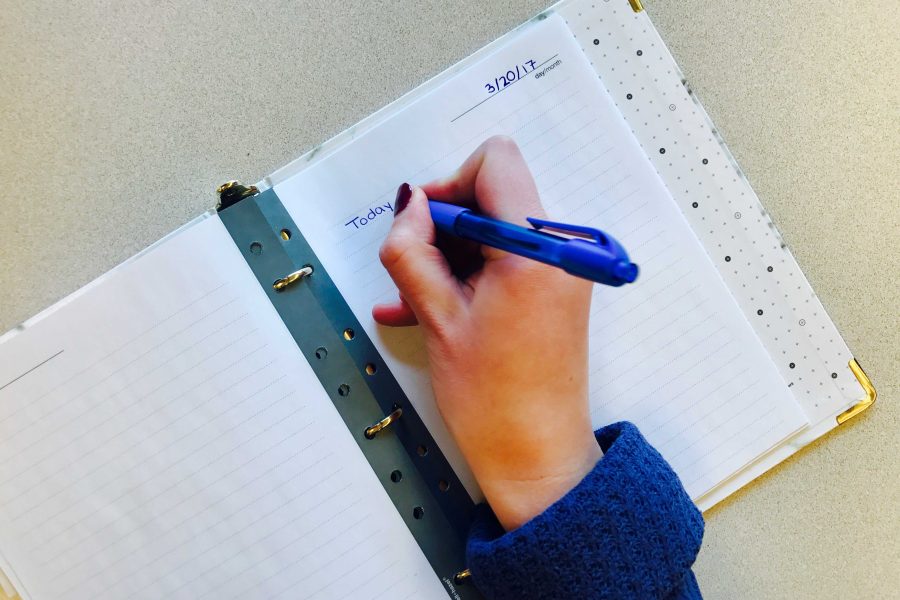Students journal to remember and de-stress
Taking thoughts to the paper
Brought to the student body’s attention by Ruby McCallum ’17’s senior speech, journaling helps relieve stress and keeps memories for generations.
The common portrayal of journals being coping mechanisms for the overly-emotional is apparent in the media and in everyday conversations. The power of journaling is often minimized, but it yields many benefits in reality.
“Journaling” holds a unique definition for each person.
For example, Ashlyn Kehoe ‘19 kept a journal all throughout her experience at Swiss Semester. Being away for three months with only a bulky camera to document as many memories as possible, Kehoe sought out daily journaling a way to reflect on and remember each day.
Kehoe adds, “I have a really bad memory, so I’m now able to remember all of my activities and emotions.”
Julia Hertzberg ‘18 journals several nights per week, but she admits that getting into the habit of journaling was difficult. She says, “I always tried [journaling] but could never keep going with it. I realized that I just needed a journal with smaller pages because I was overwhelmed by the large ones.”
Hertzberg adds, “I wanted somewhere to go for when I have a lot on my mind. It’s an outlet for emotions––if I’m stressed and I write about it, I become less stressed.”
As Hertzberg notes, although journaling “can be seen as a feminine or embarrassing thing to do, it’s a good thing.” Hertzberg recognizes the importance of getting over the stigma surrounding journaling, and encourages others to do so also.
Journaling––whether that means writing nightly diary entries, writing letters to your future self, listing off your activities of the day, or making a photo collage––is a healthy and worthwhile way to relieve stress and document your life.

I'm Eva and I'm Co-Editor-in-Chief! I also edit Front and I've served as Creative Director and Editor of Features, InDepth, and Comedy in the past. Spectrum...








